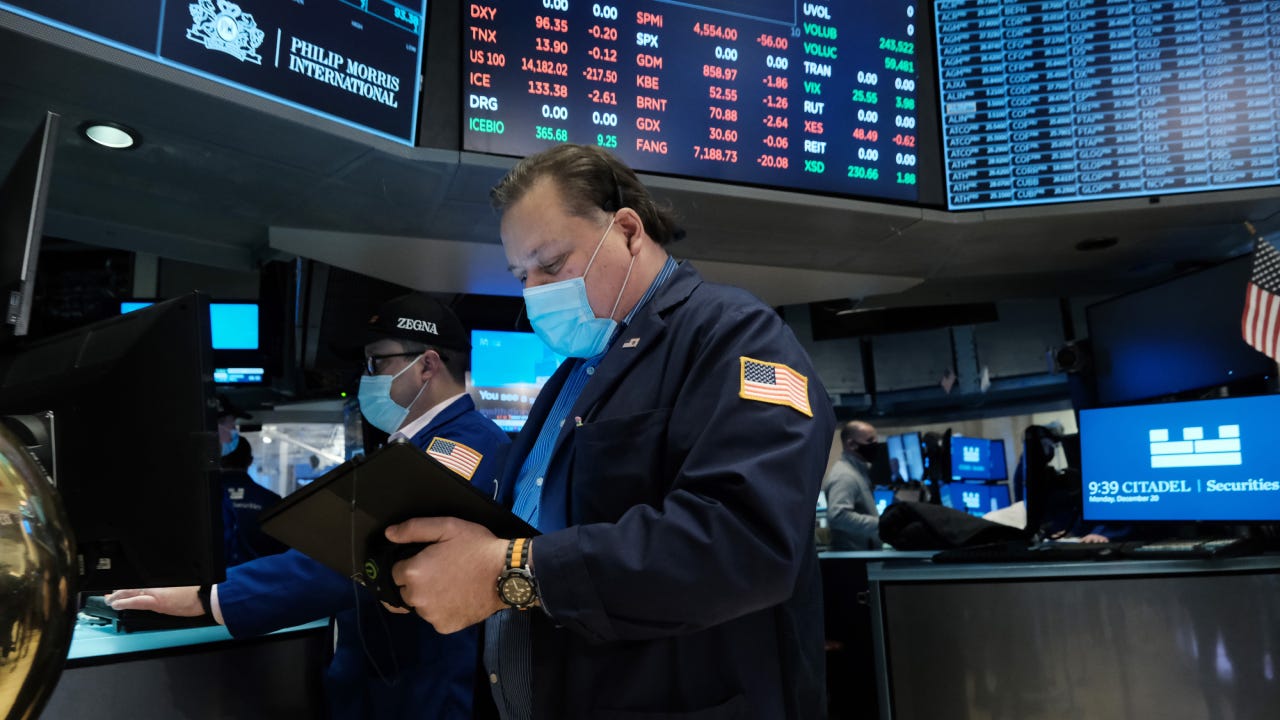Post-pandemic problems: These stocks are still down more than 50 percent from their Covid highs

The Bankrate promise
At Bankrate we strive to help you make smarter financial decisions. While we adhere to strict , this post may contain references to products from our partners. Here's an explanation for .
The stock market experienced an unexpected boom during the Covid-19 pandemic, as changes in the economy, combined with stay-at-home orders and a savings surplus for many Americans, created a frenzied trading environment.
The pandemic seemingly created new winners in the economy overnight. People scrambled to find what they needed to build a home office or home gym, and online shopping soared. Some viewed the changes as a new normal or an acceleration of digital trends that were already in place.
Stocks of the perceived winners soared in 2020 and 2021, but many have come crashing back to earth as the economy normalized and profits remained elusive. Here are some of the one-time pandemic winners that have stock prices down more than 50 percent from their Covid highs.
6 Covid stocks down more than 50 percent from all-time highs
*Current stock prices as of May 14, 2024.
Peloton Interactive (PTON)
Peloton makes several different types of fitness equipment including an exercise bike and treadmill where users can then take classes from Peloton instructors. Peloton sales peaked in its 2021 fiscal year at just over $4 billion, but have declined each year since. The company has never reported an annual profit.
- Covid high stock price: $171.09
- Current stock price: $4.26
- Decline from high: 98 percent
Wayfair (W)
Wayfair is an online seller of home goods including a variety of different furniture products. As people were hunkered down at home during the pandemic, Wayfair’s sales boomed. During the second quarter of 2020, the first full quarter of the pandemic, Wayfair’s sales grew 84 percent versus the previous year. But sales have moderated since then and 2020 was the only year when the company earned a net profit.
- Covid high stock price: $369.00
- Current stock price: $71.44
- Decline from high: 81 percent
Carvana (CVNA)
Carvana is an online used car dealer that saw sales boom during Covid, as people looked for a way to buy and sell cars that minimized face-to-face interaction. Carvana struggled once the Federal Reserve started raising interest rates and used car prices fell, and even teetered on the verge of bankruptcy before it reached an agreement to restructure its debt. Its shares traded as low as $3.55 in December 2022.
- Covid high stock price: $376.83
- Current stock price: $119.66
- Decline from high: 68 percent
Moderna (MRNA)
Moderna rose to prominence after its Covid vaccine was among the first to win FDA approval in late 2020. But the company now faces dwindling sales of its Covid vaccine and is working to diversify into other drugs. Its sales peaked in 2022 at about $19.3 billion, but fell to about $6.9 billion in 2023.
- Covid high stock price: $497.49
- Current stock price: $128.86
- Decline from high: 74 percent
PayPal (PYPL)
PayPal is an online payment services company that helps facilitate e-commerce transactions. As online shopping boomed during the pandemic, PayPal’s business boomed right alongside. Sales grew more than 20 percent in 2020 to about $21.5 billion, but the growth rate slowed to around 8 percent in both 2022 and 2023.
- Covid high stock price: $310.16
- Current stock price: $64.75
- Decline from high: 79 percent
Shopify (SHOP)
Shopify is an e-commerce company that provides the infrastructure needed for merchants to run an online business. Shopify sales grew more than 85 percent during 2020 as more businesses looked to setup an online storefront. Sales growth has moderated since then and the company has swung between generating a profit and a loss.
- Covid high stock price: $176.29
- Current stock price: $57.41
- Decline from high: 67 percent
Editorial Disclaimer: All investors are advised to conduct their own independent research into investment strategies before making an investment decision. In addition, investors are advised that past investment product performance is no guarantee of future price appreciation.
Related Articles



The Dow crossed 40,000 for the first time – Should you keep investing in stocks or wait?

Travel stocks: Ready for a ‘revenge’ rebound or stymied by sky-high inflation?